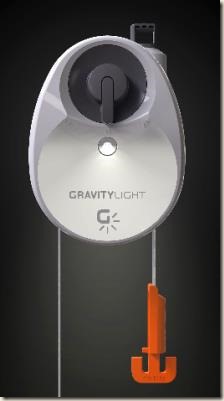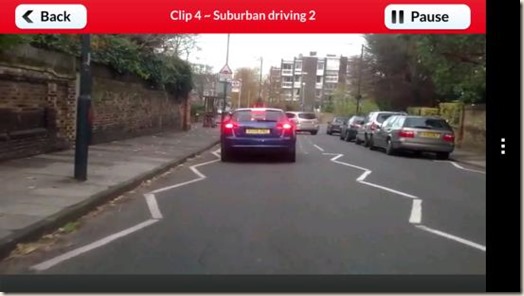I have edited this article significantly to make it clearer. The first card reader I purchased was an iZettle, and I was happy with it for a while. I had looked at the PayPal option when it first launched and PayPal’s support staff gave me conflicting information about money be tied up ‘in reserve’, which was totally unacceptable and I went with iZettle. iZettle performed flawlessly right up until the time they botched an app update and blamed it on my HTC phone suddenly being ‘unsupported’, and basically just told me ‘tough’. They almost killed my business overnight, so when they came back and apologised after acknowledging the fact that they had screwed up, it was too late. I had opted for the PayPal system after discovering that what they had told me over a year earlier was incorrect. I now use the PayPal system and it is perfect.
SEE THIS ARTICLE ON THE IZETTLE READER.
Something I’ve always wanted to be able to do is take credit and debit card payments for lessons in-car. However, the traditional way of doing this has been to open a merchant account and then purchase (or rent) a suitable credit card terminal, which is costly – particularly if your turnover is small. The terminal rental alone would have cost upwards of £10 a month (they’re  about £200 to buy), and then there would be transaction fees on top of that, plus any set up fees for the merchant account itself. Plus, they were about the size of a toaster.
about £200 to buy), and then there would be transaction fees on top of that, plus any set up fees for the merchant account itself. Plus, they were about the size of a toaster.
Yes, I could have done it. But driving instructors do not operate with high margins, and the cost would have been unacceptably high to me as a sole trader.
But all that is changing. There are a number of new solutions which combine a simple card reader with a smartphone. I’ve looked at several and have finally plumped for PayPal Here’s system.
A definite contender was iZettle’s option. The attraction here was the fact that their transaction fees operate on a sliding scale. However, what tipped the balance against this for me was the fact that payments only appear in your bank account 3-4 working days later, and I was also a little unclear on what would happen if someone’s card effectively “bounced”, since iZettle’s website at the time said that clearance didn’t happen immediately. (NOTE: THERE IS A DELAY WITH ALL SYSTEMS – NO METHOD PAYS MONEY INTO YOUR ACCOUNT IMMEDIATELY – actually, this is not true: PayPal’s system pays you pretty much straight away.).
As an example, the Friday before Late Summer Bank Holiday I received a cheque in the post. I paid it into my bank account the next day (Saturday) using the automatic paying-in machine at my branch. It didn’t actually clear until very late the following Friday – shortly before midnight, as far as I could tell. I had phoned my bank that Friday to find out what was happening, and the story was that the cheque wouldn’t have been processed until Tuesday, thereafter it would clear 3-4 working days later. I definitely do not want any credit or debit card payments taking that long to be cleared – I’d be getting paid up to a week later!
PayPal’s system clears payment immediately and pays it straight into your PayPal account.
Since it was announced in the spring, I’ve been canvassing my pupils on the subject – and all except for two have said that being able to pay by card in the car would be a huge advantage to them (i.e. it would mean not having to go to the cash point the night before). It would also be a huge advantage to me, since:
- I wouldn’t have to go to the bank to put money (or cheques) in
- I wouldn’t have to pay parking fees while visiting the bank
- I wouldn’t have the hassle of driving pupils to cash machines if they forgot
The one minor drawback is the transaction fee – 2.75% per transaction – but this is offset by not having to deal with those problems listed above. However, 2.75% appears to be the standard fee – iZettle’s sliding charge down from 2.75% only kicks in if you take more than £2,000 per month, and it only hits 2.00% if you take around £4,500. Although on paper I would easily hit that, I haven’t started taking card payments and cannot be sure how many pupils will use it after all. So once more it comes down to payments being cleared and going into my account immediately.
The PayPal terminal costs £99 outright. You order it by downloading the PayPal Here App on your smartphone, then requesting the reader via your PayPal account within the app. With the app, you can either take straight payments of any amount, or set up a stock list of products (i.e. lesson durations) with fixed prices. The terminal connects to your smartphone via Bluetooth, so there are no wires or connectors to mess with.
Mine’s on order, so I’ll see how it goes. (NOTE: PAYPAL TURNED OUT TO BE INCOMPETENT IN THE EXTREME AT ANSWERING QUESTIONS ABOUT THEIR DEVICE. THEY VARIED BETWEEN BEING CONTRADICTORY AND BEING TOTALY INCORRECT. THEIR DEVICE APPEARED USELESS FOR THE JOB I DO. EVEN NOW, EVEN WITH HINDSIGHT AND A THAWING IN THE STUPIDITY OF PAYPAL REPRESENTATIVES, IZETTLE WAS THE BEST CHOICE TO MAKE, AND THE ONE I SHOULD HAVE MADE.
SEE THIS ARTICLE ON THE IZETTLE READER. I USE THIS DEVICE AND IT IS PERFECT FOR WHAT I DO.
Update 6/9/2013: Hold the press on this! DO NOT GET THE PAYPAL CARD READER UNTIL I GET A REPLY FROM PAYPAL OVER THE FOLLOWING ISSUE.
The website clearly stated that money is paid into your account immediately. That was why I signed up. However, there is now the confusing matter of “reserves”. It seems that if you take more than £200 in any seven day period, every penny of the additional money goes into “reserve” which you cannot touch for 30 days, after which it is released to you.
This is ridiculous. If it is true, then the card reader will be going back without me even opening it, and I will opt for iZettle instead. There is no way I am going to wait 30 days for what could amount to anything up to £800. I have business running costs which are payable daily.
This was NOT made clear on the website before I signed up, and only now is the information showing in my PayPal account information pages. It is such a hugely significant detail that it should have been mentioned right at the top of the bloody page!
PayPal Here would be totally useless for driving instructors if I am reading things right. The service would be pointless for anyone taking less than £200 a week, and yet only those taking thousands would be able to withstand having their money held in reserve for a whole month.
Update 7/9/2013: Panic over! The reserve only applies to payments taken over the phone – where details are keyed in – and is a security feature that type of transaction requires. I am assured that chip & pin payments in the car have absolutely no reserve.
The guy I spoke with in Support said that he had had 20 others call before me with the exact same concerns. I pointed out that the online documentation is appallingly bad and needs to be made clearer. Even my online ticket attracted this response:
Thank you for contacting PayPal regarding reserves when using PayPal Here.
I have reviewed your account and it shows we will hold 100% of payments processed using PayPal here for 30days. This means that on the 31st day your payments will be released from the initial day of using PayPal Here. This is a rolling reserve so once the initial 30days have passed money will be released to you daily from your reserves.
You have 200GBP per week that will not be held in reserve anything over 200GBP taken in a week using the PayPal card reader will be held for 30days. So if you took 700GBP in a week you would have immediate access to 200GBP then 30days later the other 500GBP would be released to you.
The reserves only apply to payments taken using the PayPal Here device.
This is exactly the opposite of what the guy on the phone told me. The last sentence in particular is highly misleading.
Update 7/9/2013: Hold the press again! DO NOT GET ONE OF THESE CARDREADERS UNTIL I HAVE CLEARED THINGS UP WITH PAYPAL… AGAIN!
The online support is adamant that all monies above £200 are on a rolling reserve for 30 days. They have asked me to call them.
Update 8/9/2013: Everything is OK again. In spite of the totally incorrect information provided by PayPal’s email support – twice – telephone support has confirmed again that chip & pin card payments are not subject to the rolling reserve. Only payments where the card number is keyed in fall into that category, and in theory 100% of cards in the UK are chip & pin. So it shouldn’t be an issue at all.
Update 8/9/2013: Hold it again! DO NOT GET A PAYPAL READER UNDER ANY CIRCUMSTANCES.
I wrote to PayPal asking for confirmation of what phone support had said in writing, and they have again said that every penny taken above £200 will be held in reserve, no matter how it is taken.
At this moment in time I have demanded return and refund.
Update 8/9/2013: Final confirmation – DO NOT UNDER ANY CIRCUMSTANCES SIGN UP TO PAYPAL HERE UNLESS YOU ARE HAPPY FOR YOUR MONEY TO BE HELD “IN RESERVE” FOR 30 DAYS BEFORE YOU CAN ACCESS IT.
I have arranged to send my card reader back before it’s even arrived.
In spite of the absolutely appalling confusion and lack of consistent explanations by PayPal, it is now clear that every penny taken by card payment – from whatever source – is subject to this idiotic policy.
Take my own situation. Let’s imagine that I do a 40 hour week, and let’s imagine that everyone pays by debit card. My turnover will be £920, but I will only be able to access £200 of that – the rest will be held by PayPal for 30 days until it is released to me (and released “daily”, whatever that means). My business expenses for that week could easily exceed £200, so I will be in big trouble.
But if I do a similar busy week the next week, the same thing happens. And the week after that. And the week after that. And most of the week after that. So I could do 5 weeks of 40 hour weeks, with all that that entails as far as expenses go, yet only have access to £1,000 out of a total turnover of £5,000.
The PayPal Here service is not fit for purpose. I cannot imagine what sort of lunatic would be happy with such a system controlling their business. And who, I wonder, gets the interest on all the money held in reserve?
I have now ordered my iZettle reader. A 3-4 day clearance time is peanuts by comparison – and the need for me to take card payments is too great.
PayPal has shot itself in the foot big time on this one.
Update 9/9/2013: And one final word. PayPal has written to me twice more – once to contradict itself, and again to apologise for MY misunderstanding. In doing so, I think it is worth comparing the second to last email I received.
Regarding your queries, I can assure you that the majority of payments you take through PayPal Here, will be available immediately for yourself. The only payments that will be held are payments where you manually enter your buyers card details.
With the one before that:
I have reviewed your account and it shows we will hold 100% of payments processed using PayPal here for 30days. This means that on the 31st day your payments will be released from the initial day of using PayPal Here. This is a rolling reserve so once the initial 30days have passed money will be released to you daily from your reserves.
You have 200GBP per week that will not be held in reserve anything over 200GBP taken in a week using the PayPal card reader will be held for 30days. So if you tool 700GBP in a week you would have immediate access to 200GBP then 30days later the other 500GBP would be released to you.
I apologise if you were given incorrect information previously as we have only just had this confirmed by the PayPal Here development team.
And then the last one:
These reserves were in place dependant on the characteristics of your Business account. Reserves are common industry practice used to help ensure that you are able to meet the liabilities you may incur from a chargeback, claim or bank reversal, when no other funds are available.
Ordinarily, if you have a reserve on your account and receive a chargeback or dispute, we will deduct that amount from your available balance and not from your reserve balance. However, if a seller goes out of business or stops processing payments through PayPal, we will deduct any payment reversals that subsequently come in from the reserve.
I appreciate your understanding in regards to this, and I am glad that we have had this opportunity to assist you further.
I wrote back explaining it wasn’t the bloody reserve per se – but the fact that almost every penny I was likely to earn was going to go in it according to half of PayPal’s staff. However, according to the other half chip & pin was exempt. I returned the device on the strength of the final phone conversation last night which confirmed every penny went into reserve – no matter how it was taken. That was absolutely what I was told, and I even tried to argue the point.
And then I got that email above (the first quote) this morning! Well, it’s too bloody late, now. They clearly don’t know what they’re doing.
SEE THIS ARTICLE ON THE IZETTLE READER. I USE THIS DEVICE AND IT IS PERFECT FOR WHAT I DO. IT WAS PERFECT FROM THE FIRST TIME I USED IT – UNLIKE THE PAYPAL SYSTEM, WHICH NO ONE AT PAYPAL UNDERSTOOD.
 60W and 100W equivalent LED bulbs to replace annoying low-power fluorescent bulbs (which take time to reach full brightness, amongst other things).
60W and 100W equivalent LED bulbs to replace annoying low-power fluorescent bulbs (which take time to reach full brightness, amongst other things). that: she was speeding. Breaking the Law by driving too fast.
that: she was speeding. Breaking the Law by driving too fast.
 I did a bit of scouting and found this blog entry (don’t be put off by the blog’s title – when it talks of “pert breasts” it is in the new-mummy-and-daddy sense, and apart from such dubious (and nauseating, when you have other peoples kids stuffed in your face – I say this in jest, and mean no harm to the blog in question) content, the article in question is quite interesting. It deals with the same firm, and the author’s own trials with them. Apparently, the money takes months to arrive – if it comes at all.
I did a bit of scouting and found this blog entry (don’t be put off by the blog’s title – when it talks of “pert breasts” it is in the new-mummy-and-daddy sense, and apart from such dubious (and nauseating, when you have other peoples kids stuffed in your face – I say this in jest, and mean no harm to the blog in question) content, the article in question is quite interesting. It deals with the same firm, and the author’s own trials with them. Apparently, the money takes months to arrive – if it comes at all. leviathan style – to start thinking about planning to maybe eventually move up to something else… perhaps. And when they realise the overall cost, someone will have the brilliant idea of going for Lotus Suite (again) instead of Office, because IBM is desperately trying to offload it for peanuts to increase poor sales, and the company I used to work for has such a tight arse, even buying ONE Office licence would have them calling crisis meeting after crisis meeting to “address the issue”.
leviathan style – to start thinking about planning to maybe eventually move up to something else… perhaps. And when they realise the overall cost, someone will have the brilliant idea of going for Lotus Suite (again) instead of Office, because IBM is desperately trying to offload it for peanuts to increase poor sales, and the company I used to work for has such a tight arse, even buying ONE Office licence would have them calling crisis meeting after crisis meeting to “address the issue”. about £200 to buy), and then there would be transaction fees on top of that, plus any set up fees for the merchant account itself. Plus, they were about the size of a toaster.
about £200 to buy), and then there would be transaction fees on top of that, plus any set up fees for the merchant account itself. Plus, they were about the size of a toaster.